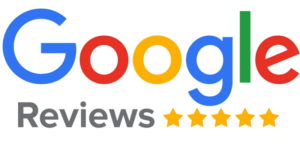The need for Individual Health Insurance
Typically, uninsured people often don’t visit the doctor, don’t fill prescriptions, and don’t undergo basic preventive checkups and lab tests to keep them healthy. Even when they go without preventive care and necessary prescriptions, many of the underinsured are still unable to cover all their medical expenses.
- According to the U.S. Census Bureau, the number of uninsured in the U.S. is 48.2 million people.
- In a study completed by the (MA) Commonwealth Fund in 2012, 41 percent of the adults (or an estimated 75 million people) reported that they had a hard time paying their medical bills.
- Approximately 50 percent of personal bankruptcies are due to medical expenses. (Source: MA Health Affairs)
- According to a Kaiser Family Foundation poll, 28 percent of middle income families (annual family income between $30,000 and $75,000) stated that they were currently having a serious problem paying for healthcare or health insurance.


Finding the Right Options
Many choices exist for people shopping for health insurance. Whether it’s your first time shopping for an individual, family or group health plan or you’re looking to renew existing coverage, we at Independent Benefit Solutions give you the information you need to make the best decision. Choose coverage from a host of carriers at a variety of price points. For most, a plan that meets both of these needs is available. We can help you find a plan to fit your budget and any situation.
Policy Types
“Without health insurance, a single medical event could quickly destroy your budget and even bankrupt your family.”
Individual Health Insurance
Individual health insurance is health coverage you purchase on your own directly from an insurance company, rather than a plan sponsored by an employer. These policies can cover single people as well as families.
Many people cannot access health insurance through their employer. This includes people who are self-employed, people who work part time or people who are unemployed. Also, some who are employed full-time may find that their employer doesn’t offer health coverage. Plus, employer-sponsored coverage can be too expensive or inflexible for some people. Even without group insurance, you need coverage to protect yourself and your family.
Group Health Benefits
Is a health plan offered by an employer or employee organization that provides health coverage to employees and their families. Usually, the costs of these plans are subsidized by the employer and many offer additional benefits including dental, vision and prescriptions. Many of these plans are payroll deducted using pre-tax dollars which provides an additional tax benefit.
Health Maintenance Organizations (HMO)
An organization that provides healthcare coverage to its members through a network of doctors, hospitals, and other healthcare providers. HMO plans usually require that all of a member’s care, including their annual exam, any diagnostic tests and referrals to specialists be coordinated through the member’s primary care physician (PCP).
Health Savings Account (HSA)
Health Savings Accounts (HSA) help you manage your medical bills using a tax-advantaged savings account. These can be used with certain high-deductible health plans to pay for qualified medical expenses, now and in the future. Contributions to the HSA are tax-deductible, and withdrawals to pay for qualifying medical expenses are tax-free. Money can stay in the account from year to year, and any interest accrues tax-free. You can roll over money from one year to the next and even use it when you are retired. Penalties may apply when money is used to pay for anything other than qualifying medical expenses. Another great use of HSA’s is to fund Long Term Care insurance to provide for double tax savings. See also “Long Term Care insurance”.
Flexible Spending Account (FSA)
An arrangement you set up through your employer to pay for many of your out-of-pocket medical expenses with tax-free dollars. These expenses include insurance copayments and deductibles, and qualified prescription drugs, and medical devices. You decide how much of your pre-tax wages you want taken out of your paycheck and put into an FSA. You don’t have to pay taxes on this money. Your employer’s plan sets a limit on the amount you can put into an FSA each year. There is no carry-over of FSA funds.
HealthSource RI
A health insurance marketplace (also called an “exchange”) set up by the state of Rhode Island. Through HealthSource RI, individuals, families, and small businesses can learn about their health coverage options, compare health insurance plans based on costs, benefits, and other important features. The health insurance marketplace also includes information on programs that help people pay for coverage, including ways to save on monthly premiums and out-of-pocket costs. Under the Affordable Health Care Act, health insurance will be mandatory. Individuals who fail to carry adequate coverage will face a tax penalty of 2.5 percent of their adjusted gross income. Representatives of Independent Benefit Solutions are an authorized agent of HealthSource RI and can help you with plan choices.
Dental Plans
Taking care of your teeth doesn’t just help your smile, it’s good for your overall health too. Because oral health is so important, we make it easy to help you pick a dental plan, if available. Keep your smile healthy with our plan benefits, including preventive care, basic services like filings, and major services such as root canals. Preventive care is covered at 100% with no deductible or waiting period. Maintaining a healthy mouth is important to your general well-being, and our plan sponsors can provide comprehensive dental coverage for people of any age or at any stage in life. These plans are optional.
Vision Plans
A financial protection plan that requires the policyholder to pay a monthly fee in exchange for reduced-cost fees on some eye health and vision correction services and products. Vision care insurance will often cover routine eye health expenses such as eye exams, contact lens fittings, contact lenses and eyeglass lenses and frames and may provide a discount on LASIK procedures. The plan may cover the cost of these items in full, up to a preset limit, or may require the policyholder to pay a flat fee or percentage fee to share the expense with the insurer. Vision care insurance tends to be inexpensive compared to other types of insurance, because many of the covered costs are predictable and expensive claims are rare. Available in select states.
Critical Illness Insurance
Want to keep your health insurance premiums low? Consider high deductible insurance with Critical Illness coverage for added protection during a major medical event, such as cancer or a heart attack. Health insurance helps offset the high cost of hospitalization, but it doesn’t cover all out-of-pocket medical bills following a major accident, injury or prolonged illness. A medical crisis can quickly cut deep into your savings. But the unfortunate reality is that your monthly bills must be paid, even if you’re unable to work. A Critical Illness insurance policy pays tax-free cash for any qualifying serious illness. You can use the money however you want — for bills, living expenses, out-of-pocket medical costs, and more. See also “Voluntary Benefits” tab.




